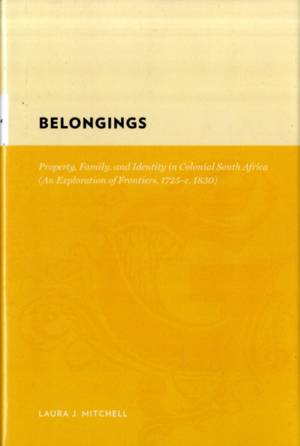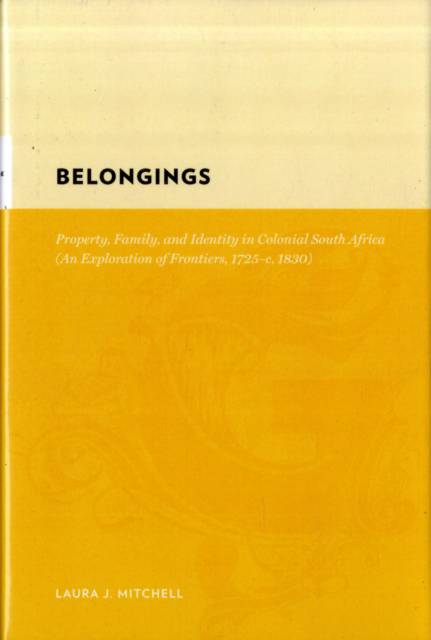
- Retrait gratuit dans votre magasin Club
- 7.000.000 titres dans notre catalogue
- Payer en toute sécurité
- Toujours un magasin près de chez vous
- Retrait gratuit dans votre magasin Club
- 7.000.0000 titres dans notre catalogue
- Payer en toute sécurité
- Toujours un magasin près de chez vous
135,95 €
+ 271 points
Description
Laura J. Mitchell concentrates on the contested dynamics of land tenure in the Cedarberg region of the Western Cape, from the first settler land claim of 1725 to the entrenchment of colonial administration in the 1830s. Based on a decade of research, Mitchell focuses on the conflict between Dutch East India Company officials, settlers, indigenous Khoisan, and Indian-Ocean slaves, detailing the ways in which settlers themselves--rather than Company policy or an imperial army--drew the frontier into a colonial orbit and then gradually placed it under colonial control. Against a backdrop of often violent resistance, settlers claimed land one farm at a time. Family by family, household by household, the inhabitants of the Cedarberg region were bound to each other and to a colonial society based at Cape Town. The Khoisan resisted displacement, the appropriation of their livestock and hunting grounds, involuntary servitude, and subordination. Likewise, settlers resisted the Dutch East India Company's efforts at controlling territorial expansion, limiting their interaction with independent Khoisan groups, and regulating bonded labor. At the same time, the increasing presence of European material culture in frontier spaces proved that many settlers still affirmed their relationship to colonial power. Mitchell enriches her social history with insights from anthropology, archaeology, sociology, and environmental and women's studies, considering multiple sources of power and identity and recovering the role of women in creating settler society.
Spécifications
Parties prenantes
- Auteur(s) :
- Editeur:
Contenu
- Nombre de pages :
- 252
- Langue:
- Anglais
- Collection :
Caractéristiques
- EAN:
- 9780231142526
- Date de parution :
- 11-11-08
- Format:
- Livre relié
- Format numérique:
- Genaaid
- Dimensions :
- 152 mm x 229 mm
- Poids :
- 526 g

Les avis
Nous publions uniquement les avis qui respectent les conditions requises. Consultez nos conditions pour les avis.






